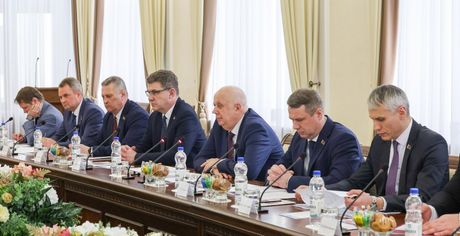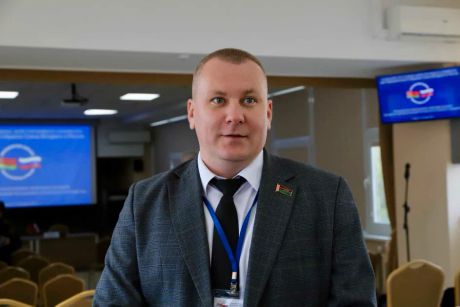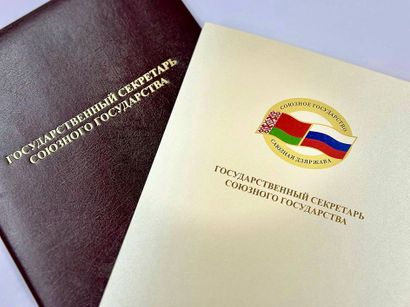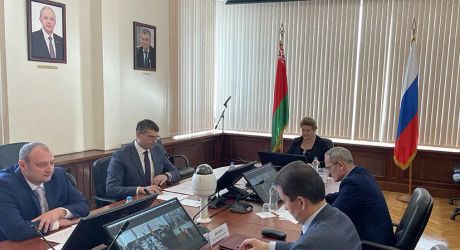Gromyko: The Union State needs to remain the engine of integration processes on the post-Soviet area
16:56, 6 January
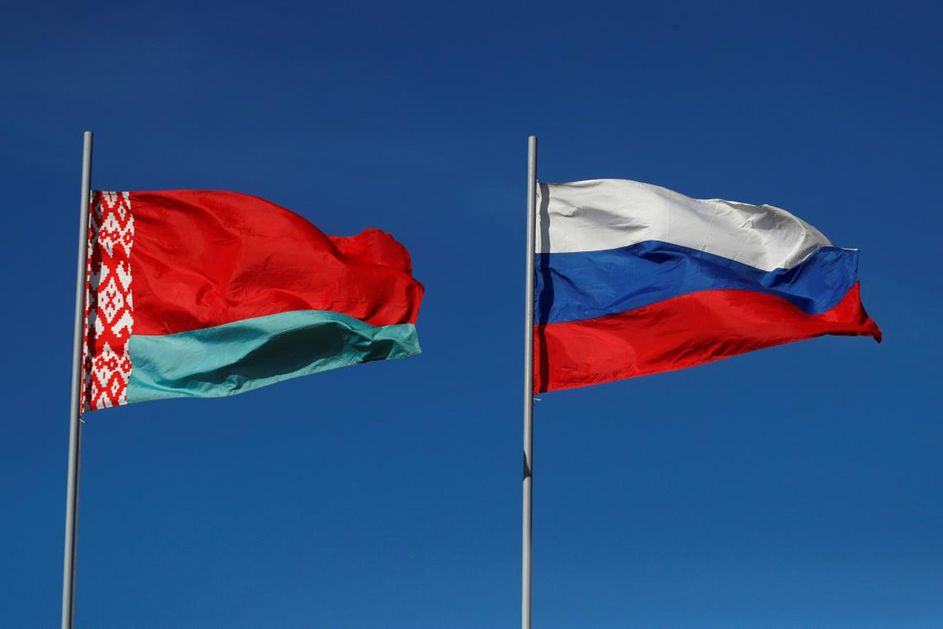
In an interview with the website of the Union State Standing Committee, Director of the Institute of Europe of the Russian Academy of Sciences (IE RAS) shared his views on the integration paths of Belarus and Russia.
- Share on Facebook
- Share on VK
- Share on Twitter
During the scientific-practical conference “Union State: Achievements, Problems, Prospects”, at the sub-forum devoted to economics, Director of the Institute of Europe of the Russian Academy of Sciences, RAS Corresponding Member, Doctor of Sciences (History), professor Alexei Gromyko made a report entitled “Geoeconomics and Geopolitics in the Eurasian Space”.
“Regional integration has been an indispensable element of globalization for several decades,” said Alexei Gromyko. “Although today we have a lot of elements that we call deglobalizing ones, regional integration processes are becoming no less significant, and in some ways even more important”.
“It is crucial that if a certain integration process is objective, then it is almost impossible to stop it. However, as a rule, integration follows not a pre-written plan, although such a plan is needed, but rather a bizarre direction of time and circumstances follies. Many can remember the dramatic period at the boundary of the 80s and 90s as well as the 90s. However, I must say that after the collapse of the Soviet Union, the world became much more complicated. Russia and Belarus, now as independent, sovereign states, are still closely connected, even 30 years on.
We are well aware of the fact that Moscow and Minsk pursue a multi-vector policy. Yet, it is essential that both capitals have constants as well. First, it concerns strengthening and further establishment of the Union State. We can also say that production cooperation, joint creation of added value chains, joint breakthroughs at the forefront of scientific and technological progress are in particular need of consolidation and further facilitation of trade, economic and information integration. No doubt, without a well-thought-out joint industrial policy, both at the level of the Union State and at the level of the Eurasian Economic Union, no breakthroughs are possible. It seems to me this should be clear to everyone.
In the coming months and years, the world will not become calmer or more comfortable, neither for Russia, nor for Belarus. Apparently, fierce competition, including in the economic area, not to mention geopolitics, will only increase. The global economy is slowing down. In 2019, it was below three percent for the first time in ten years. The EU economy is stagnating. In the US, economic growth next year could fall below 2 percent. In China, growth rates are likely to fall below 6 percent for the first time in several decades. The Russian economy may show only 1 percent this year.
With all this, what are the United States doing? I am not talking about security, but about the global economy. They are engaged in a planned and, in some sense, mocking strangulation of the World Trade Organization. Do you know that they are not taking the necessary steps to fill the vacancies of judges of the WTO appeals body, in the face of the other 163 WTO members? Literally these days, this body may cease to function at all. What does it mean? The WTO is unnecessary?
Economic modernization, labor productivity improvement, investment in human capital, science and youth are the imperatives of our time. The issue of social inequality is also acute, especially for Russia. We argue and talk about this a lot.
It is necessary to look for ways of optimal integration and participation in such a megaproject as “One Zone, One Way”. It seems to promise big dividends to everyone. Yet, it will happen only in case of proper positioning. In the future, three trans-regional corridors will be formed. As for the territory of the Union State, these are Europe, the Caspian Sea, Central Asia, Iran and India. The second is from the ports of the Baltic Sea to the ports of the Yellow Sea. And the third one is the territory of Russia only: it is the Arctic, Eastern Siberia and ports in the Pacific and Indian Ocean.
Regarding the 20th anniversary of the Union State, we must not forget that there exists and is developing a potentially powerful association: the Shanghai Cooperation Organization (SCO). You know that India and Pakistan joined it in 2017. Belarus, Iran, Mongolia and Afghanistan take part in it as observers. Moreover, the SCO has six more dialogue partners. These are Azerbaijan, Armenia, Turkey, Nepal, Cambodia and Sri Lanka.
The system of strategic stability as well as the arms control system has been destabilized. The US withdrawal from the agreement on the elimination of intermediate-range and shorter-range missiles is a time bomb. In recent weeks, another question has been raised in Washington: the Open Skies Treaty. NATO is building up infrastructure in Poland and the Baltic states. Let me remind you that one of the countries of the alliance has not settled the issue of the territorial border on purpose. This is the border between Estonia and Russia.
I am convinced that all conversations about a so-called dilemma – the Union State or the Eurasian Economic Union – are pointless. I believe that the Union State should remain the engine of the integration processes on the post-Soviet area, set the tone. Obviously, it should also take into account the interests of all participating countries. Here the spillover effect is much in demand, that is, to use the experience of Union State integration in the Eurasian one. The EEU has already proved the reasonability of its existence; but it cannot avoid the problems of growth. Just like it has been happening with the Union State in the last 20 years, they need to expand both broad and deep.
The West has recently been playing with Belarus. In early November, the Wall Street Journal wrote that the West is afraid of Union State’s strengthening and considers it necessary to build up careful contacts with Minsk. Former deputy secretary general of NATO Mr. Vershbow advises how to do it right. According to him, caution should be exercised so that Moscow will not get an impression of too close ties with Minsk. In this regard, I consider it unproductive for Belarusians to interpret the external attitude towards themselves as a kind of buffer between Russia and the West. For us, you are friends and allies, while for the West you are nothing more than expendable material used for geopolitical confrontation with Russia. Therefore, it seems to me fundamentally wrong to put Russia and the West in relation to Belarus on the same level. However, there have been such discussions lately.
In these circumstances, it seems to me that the importance of such intellectual, information and analytical platforms as the Integration Club under the Chairmanship of the Federation Council in Russia, Association for Foreign Policy Research named after A.A. Gromyko, Inter-Academic Council of the Russian Academy of Sciences and the National Academy of Sciences, Russian-Belarusian Expert Club, Club of Rectors of the two countries, the broadcasting organization, Club of Chief Editors of Russia and Belarus “Druziya-Syabry”, as well as many other associations and organizations must redouble their efforts in order to strengthen the Union State, consolidate its legislative, social and economic structure and solve problems of further growth. In the past and present, and well into the future problems are there. The closer we are, the more problems there will be. Yet, mutual understanding and trust will also be greater.
Andrey Andreyevich Gromyko, who would have turned 110 this year, came from Gomel region, the village of Stary Gromyki. Both for Russia and Belarus, he was and remains a common symbol of diplomatic steadfastness and skill in protecting our then common national interests. I have no doubt that if he had been with us, he would have fully supported this common work and effort.
Information source: Union State Standing Committee website



